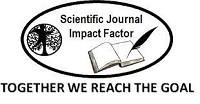The Effect of Material Flow Cost Accounting on Company Sustainability: Moderating Role of Green Accounting in Consumer Goods Industry Companies
DOI:
https://doi.org/10.56225/ijassh.v3i1.303Keywords:
Material flow cost accounting, Company sustainability, Green accounting, Consumer goods industry companiesAbstract
This study analyzes the influence of material flow cost accounting in improving company sustainability. Material flow cost accounting. This research uses proxies for production costs, factory area, and output or production value. The population used in this research is all goods and consumption companies listed on the IDX for the 2015-2021 period. Through Purposive sampling, the samples obtained were 6 companies in that period, so 42 data were obtained. Data processing in this research was carried out using multiple regressions and moderated regression methods with an absolute difference value approach. This research concludes that MFCA (production costs) negatively and significantly affects company sustainability. This means that reducing production costs to get higher profits will increase the company's sustainability. Meanwhile, MFCA (factory area and output or production value) positively and significantly influences company sustainability. This shows that the wider the company's area and every time there is an increase in production results, the company's sustainability can increase. Besides, green accounting cannot moderate material flow cost accounting on company sustainability.
References
Abdullah, M. W., & Amiruddin, H. (2020). Efek green accounting terhadap material flow cost accounting dalam meningkatkan keberlangsungan perusahaan. Ekuitas (Jurnal Ekonomi Dan Keuangan), 4(2), 166–186. https://doi.org/10.24034/j25485024.y2020.v4.i2.4145
Akhirul, A., Witra, Y., Umar, I., & Erianjoni, E. (2020). Dampak Negatif Pertumbuhan Penduduk Terhadap Lingkungan Dan Upaya Mengatasinya. Jurnal Kependudukan Dan Pembangunan Lingkungan, 1(3), 76–84.
Alfian, R., Hamzah, R., & Dede, H. A. (2020). Analisa Implementasi Material Flow Cost Accounting (MFCA) pada Perusahaan Industri (Studi Kasus pada PT. Unipres Indonesia). E-Jurnal Apresiasi Ekonomi, 8(1), 86–98.
Aniskin, Y. P., Moiseeva, N. K., Rygalin, D. B., & Sedova, O. V. (2015). Innovation and marketing activity of high technology companies in business management. International Journal of Economics and Financial Issues, 5(3), 25–33.
Ardina, A. K., Damayanti, N., Anggraini, S. M., Rachman, M. R., & Lastiati, A. (2020). Implementasi material flow cost accounting pada industri UMKM (Studi kasus konveksi rumahan 4 Putri). E-Prosiding Akuntansi, 2(1), 1–16.
Astuti, N. (2012). Mengenal green accounting. Permana: Jurnal Perpajakan, Manajemen, Dan Akuntansi, 4(1), 69–75.
Auliya, N., Abdullah, M. W., & Suhartono, S. (2020). Green Accounting: Refleksi Hak Asasi Manusia dalam Upaya Pencegahan Limbah. ISAFIR: Islamic Accounting and Finance Review, 1(2), 97–110. https://doi.org/10.24252/isafir.v1i2.17800
Burhany, D. I. (2011). Pengaruh implementasi akuntansi lingkungan terhadap kinerja lingkungan dan pengungkapan informasi lingkungan serta dampaknya terhadap kinerja keuangan perusahaan. Indonesian Journal of Economics and Business, 1(2), 1–8.
Clarkson, M. E. (1995). A Stakeholder Framework for Analyzing and Evaluating Corporate Social Performance. Academy of Management Review, 20(1), 92–117. https://doi.org/10.5465/amr.1995.9503271994
Dewi, M. K., & Syaifullah, Y. (2022). Analisis Pengaruh Jumlah Industri, Nilai Investasi, Dan Nilai Produksi Terhadap Penyerapan Tenaga Kerja Sektor Industri Kecil Dan Mikro Di Jawa Timur. Jurnal Ilmu Ekonomi JIE, 6(1), 145–155. https://doi.org/10.22219/jie.v6i1.19129
Franciska, R. M., Sondakh, J. J., & Tirayoh, V. Z. (2019). Analisis penerapan akuntansi biaya lingkungan pada pt. royal coconut airmadidi. Going Concern: Jurnal Riset Akuntansi, 14(1), 58–63.
Freeman, R. E. (2010). Strategic management: A stakeholder approach. Cambridge university press.
Freeman, R. E., & McVea, J. (2005). A Stakeholder Approach to Strategic Management. In The Blackwell Handbook of Strategic Management (pp. 183–201). Wiley. https://doi.org/10.1111/b.9780631218616.2006.00007.x
Ganesha, I., & Hartanti, D. (2019). Analisis Stakeholders Management PT ABC Terkait Kasus Kebakaran Lahan. Jurnal Riset Akuntansi Dan Keuangan Vol, 7(2), 229–240.
Halim, E. E., Wahyudi, O. B., & Yogatamaa, A. (2020). Strategi Stakeholder Relations Pengelola Sentra UMKM Rumah Kreatif Dolly Saiki Point Surabaya. Jurnal E-Komunikasi, 8(2), 1–12.
Hamidi, H. (2013). Green Accounting. In Encyclopedia of Corporate Social Responsibility (Vol. 6, Issue 2, pp. 1286–1286). Springer Berlin Heidelberg. https://doi.org/10.1007/978-3-642-28036-8_100807
Haniffa, R. M., & Cooke, T. E. (2005). The impact of culture and governance on corporate social reporting. Journal of Accounting and Public Policy, 24(5), 391–430. https://doi.org/10.1016/j.jaccpubpol.2005.06.001
Hari, K. K., Kainama, M. S., Corrina, F., Maelani, P., Purba, A. P., Kusumawaty, M., Sholihat, W., Parju, P., Yanti, D., & Handayani, M. (2023). Akuntansi Biaya. CV. Gita Lentera.
Hartomo, D. D., & Cahyadin, M. (2013). Pemeringkatan faktor keberlangsungan usaha industri kreatif di kota Surakarta. Jurnal Ekonomi Dan Kebijakan Publik, 4(2), 225–236.
Iskandar, N. M., & Fahin, I. S. (2017). Perancangan Tata Letak Fasilitas Ulang (Relayout) Untuk Produksi Truk Di Gedung Commercial Vehicle (Cv) Pt. Mercedes-Benz Indonesia. Penelitian Dan Aplikasi Sistem Dan Teknik Industri, 11(1), 66–75.
Lindawati, A. S. L., & Puspita, M. E. (2015). Corporate Social Responsibility: Implikasi Stakeholder dan Legitimacy Gap dalam Peningkatan Kinerja Perusahaan. Jurnal Akuntansi Multiparadigma, 6(1), 157–174. https://doi.org/10.18202/jamal.2015.04.6013
Loen, M. (2018). Penerapan green accounting dan material flow cost accounting (MFCA) terhadap sustainable development. Jurnal Akuntansi Dan Bisnis Krisnadwipayana, 5(1), 1–14. https://doi.org/10.35137/jabk.v5i1.182
Marisya, F. (2022). Analisis Perhitungan Harga Pokok Produksi Menggunakan Metode Full Costing Untuk Menentukan Harga Jual Pada UMKM Tempe Pak Rasman Oku Selatan. Ekonomica Sharia: Jurnal Pemikiran Dan Pengembangan Ekonomi Syariah, 7(2), 141–152.
Marota, R. (2017). Green concepts and material flow cost accounting application for company sustainability. Indonesian Journal of Business and Entrepreneurship, 3(1), 43–51. https://doi.org/10.17358/ijbe.3.1.43
Mufti, R. H. (2021). Analisis Efisiensi Produksi Menggunakan Framework Material Flow Cost Accounting (Mfca) Pada Industri Batik (Studi Kasus di Batik Sekarniti). ABIS: Accounting and Business Information Systems Journal, 9(2), 1–24. https://doi.org/10.22146/abis.v9i2.65900
Mulya, A. S. (2017). Faktor yang mempengaruhi keberlanjutan perusahaan dengan peluang investasi sebagai variabel intervening. 96–106.
Nabila, R. (2021). Green Accounting For Sustainable Development: Case Study Of Indonesia’S Manufacturing Sector. Akuntansi Dewantara, 5(1), 1–10. https://doi.org/10.26460/ad.v5i1.9147
Ningsih, N. M. C., & Indrajaya, I. G. B. (2015). Pengaruh modal dan tingkat upah terhadap nilai produksi serta penyerapan tenaga kerja pada industri kerajinan perak. Jurnal Ekonomi Kuantitatif Terapan, 8(1), 83–91.
Nugrahaeni, D. W., & Handayani, H. R. (2021). Analisis pengaruh upah, modal, dan nilai produksi terhadap penyerapan tenaga kerja di industri tahu serasi kecamatan bandungan. Diponegoro Journal of Economics, 9(2), 56–65.
Pattiapon, M. L., & Maitimu, N. E. (2021). Perancangan Ulang Tata Letak Fasilitas Produksi Dengan Menggunakan Metode Algoritma Blocplan Pada Pt. X. ARIKA, 15(2), 104–114. https://doi.org/10.30598/arika.2021.15.2.104
Pristianingrum, N. (2017). Peningkatan efisiensi dan produktivitas perusahaan manufaktur dengan sistem Just In Time. ASSETS: Jurnal Ilmiah Ilmu Akuntansi, Keuangan Dan Pajak, 1(1), 41–53.
Purnamasari, I., Adhimursandi, D., & Nadir, M. (2018). Optimalisasi manufacturing cycle effectivieness (mce) terhadap pengelolaan value added activities dan non value added activities dalam meningkatkan efisiensi produksi. Jurnal Manajemen, 10(1), 29–37.
Rachmawati, W., & Karim, A. (2021). Pengaruh Green Accounting Terhadap Mfca Dalam Meningkatkan Keberlangsungan Usaha Serta Resource Efficiency Sebagai Variabel Moderating (Studi Kasus Pada Perusahaan Peraih Penghargaan Industri Hijau). Tirtayasa Ekonomika, 16(1), 59–82. https://doi.org/10.35448/jte.v16i1.10205
Samsul, S., Budiman, A. A., & Anshariah, A. (2018). Analisis Dampak Positif Industri Terhadap Lingkungan Masyarakat. Jurnal Geomine, 6(2), 54–59. https://doi.org/10.33536/jg.v6i2.209
Sapulette, S. G., & Limba, F. B. (2021). Pengaruh Penerapan Green Accounting dan Kinerja Lingkungan terhadap Nilai Perusahaan Manufaktur yang terdaftar di BEI tahun 2018-2020. Kupna Akuntansi: Kumpulan Artikel Akuntansi, 2(1), 31–43. https://doi.org/10.30598/kupna.v2.i1.p31-43
Saraswati, A. M., Oktafiana, N. F., Wardani, P. K., & Sari, S. P. (2019). Corporate Social Responsibility pada Nilai Perusahaan Klasifikasi Industri Agrikultur di Bursa Efek Indonesia. Publikasiilmiah.Ums.Ac.Id, 431–439.
Selpiyanti, S., & Fakhroni, Z. (2020). Pengaruh Implementasi Green Accounting dan Material Flow Cost Accounting Terhadap Sustainable Development. Jurnal ASET (Akuntansi Riset), 12(1), 109–116. https://doi.org/10.17509/jaset.v12i1.23281
Simon, A. Y. P., Wibowo, A. S., & Rosel, R. (2023). Pengaruh Penerapan Green Accounting Terhadap Kinerja Keuangan dengan Good Corporate Governance Sebagai Pemoderasi (Studi Empiris Pada Perusahaan Sektor Manufaktur yang Terdaftar di Bursa Efek Indonesia Periode 2016-2020. Jurnal Manajemen Sains Dan Organisasi, 3(3), 221–231. https://doi.org/10.52300/jmso.v3i3.7543
Suhardi, A. R., & Purnamaputri, A. (2017). Apakah Perubahan Plant Layout Dapat Meningkatkan Efisiensi Produksi? Jurnal Muara Ilmu Ekonomi Dan Bisnis, 1(1), 1–11. https://doi.org/10.24912/jmieb.v1i1.401
Sukihana, I. A. (2018). Tanggung Jawab Perusahaan Dari Profit Menuju Stakeholders Oriented Studi CSR Di Tabanan. Kertha Patrika, 39(03), 193. https://doi.org/10.24843/KP.2017.v39.i03.p04
Sukirman-Suciati, A. S. (2019). Penerapan akuntansi lingkungan terhadap pengelolaan limbah bahan berbahaya beracun (B3) pada RSUP Dr. wahidin sudirohusodo makassar. Jurnal Riset Terapan Akuntansi, 3(2), 89–105.
Tajelawi, O. A., & Garbharran, H. L. (2015). MFCA: An environmental management accounting technique for optimal resource efficiency in production processes. World Academy of Science, Engineering and Technology (Online), 9(11), 3758–3763.
Taufiq, A. (2016). Upaya pemeliharaan lingkungan oleh masyarakat di Kampung Sukadaya Kabupaten Subang. Jurnal Geografi Gea, 14(2), 124–134. https://doi.org/10.17509/gea.v14i2.3402
Downloads
Published
How to Cite
Issue
Section
License
Copyright (c) 2024 Authors

This work is licensed under a Creative Commons Attribution 4.0 International License.
Copyright @2022. This is an open-access article distributed under the terms of the Creative Commons Attribution 4.0 International License (https://creativecommons.org/licenses/by/4.0/) which permits unrestricted to copy and redistribute the material in any medium or format, remix, transform, and build upon the material for any purpose, even commercially.

This work is licensed under a Creative Commons Attribution 4.0 International License.















